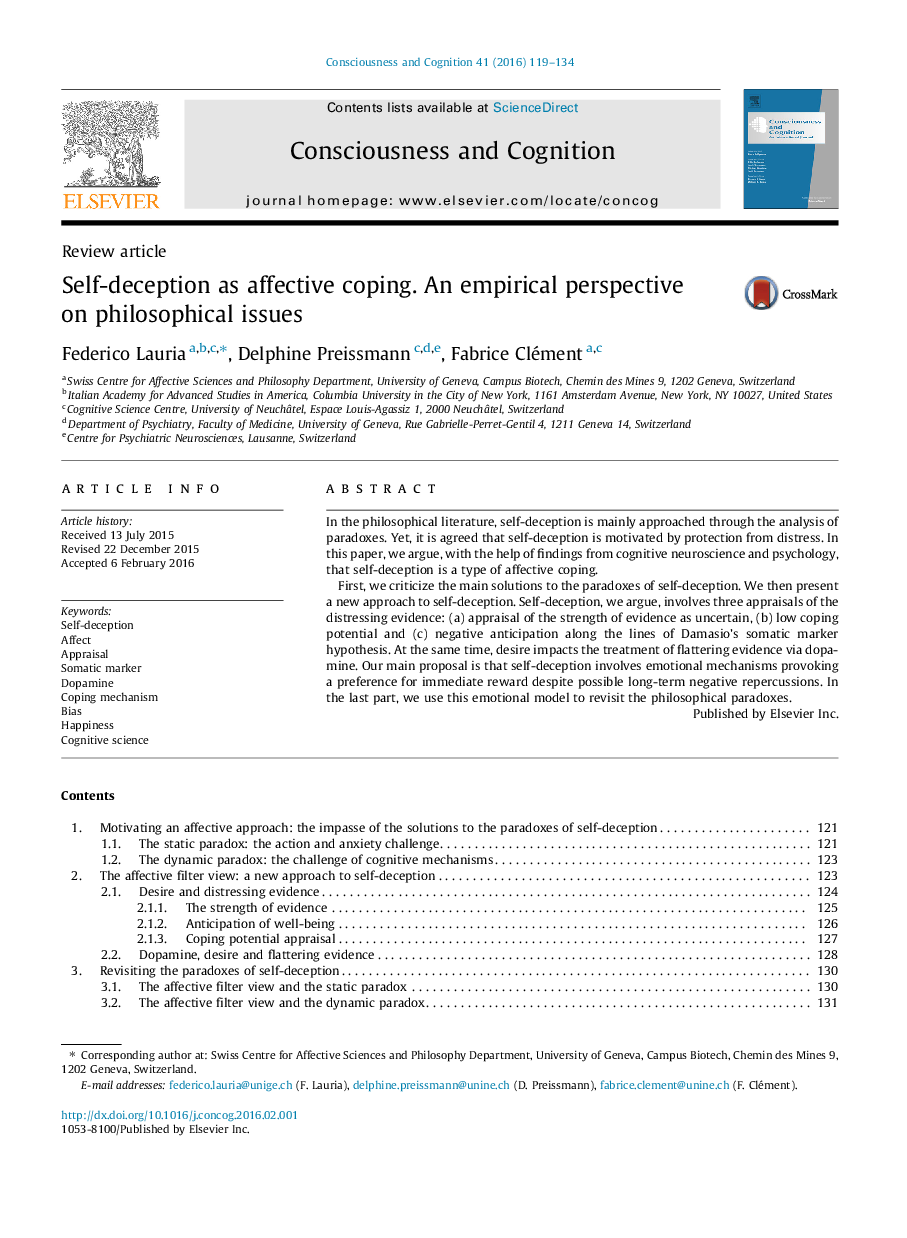| Article ID | Journal | Published Year | Pages | File Type |
|---|---|---|---|---|
| 7288702 | Consciousness and Cognition | 2016 | 16 Pages |
Abstract
First, we criticize the main solutions to the paradoxes of self-deception. We then present a new approach to self-deception. Self-deception, we argue, involves three appraisals of the distressing evidence: (a) appraisal of the strength of evidence as uncertain, (b) low coping potential and (c) negative anticipation along the lines of Damasio's somatic marker hypothesis. At the same time, desire impacts the treatment of flattering evidence via dopamine. Our main proposal is that self-deception involves emotional mechanisms provoking a preference for immediate reward despite possible long-term negative repercussions. In the last part, we use this emotional model to revisit the philosophical paradoxes.
Keywords
Related Topics
Life Sciences
Neuroscience
Cognitive Neuroscience
Authors
Federico Lauria, Delphine Preissmann, Fabrice Clément,
